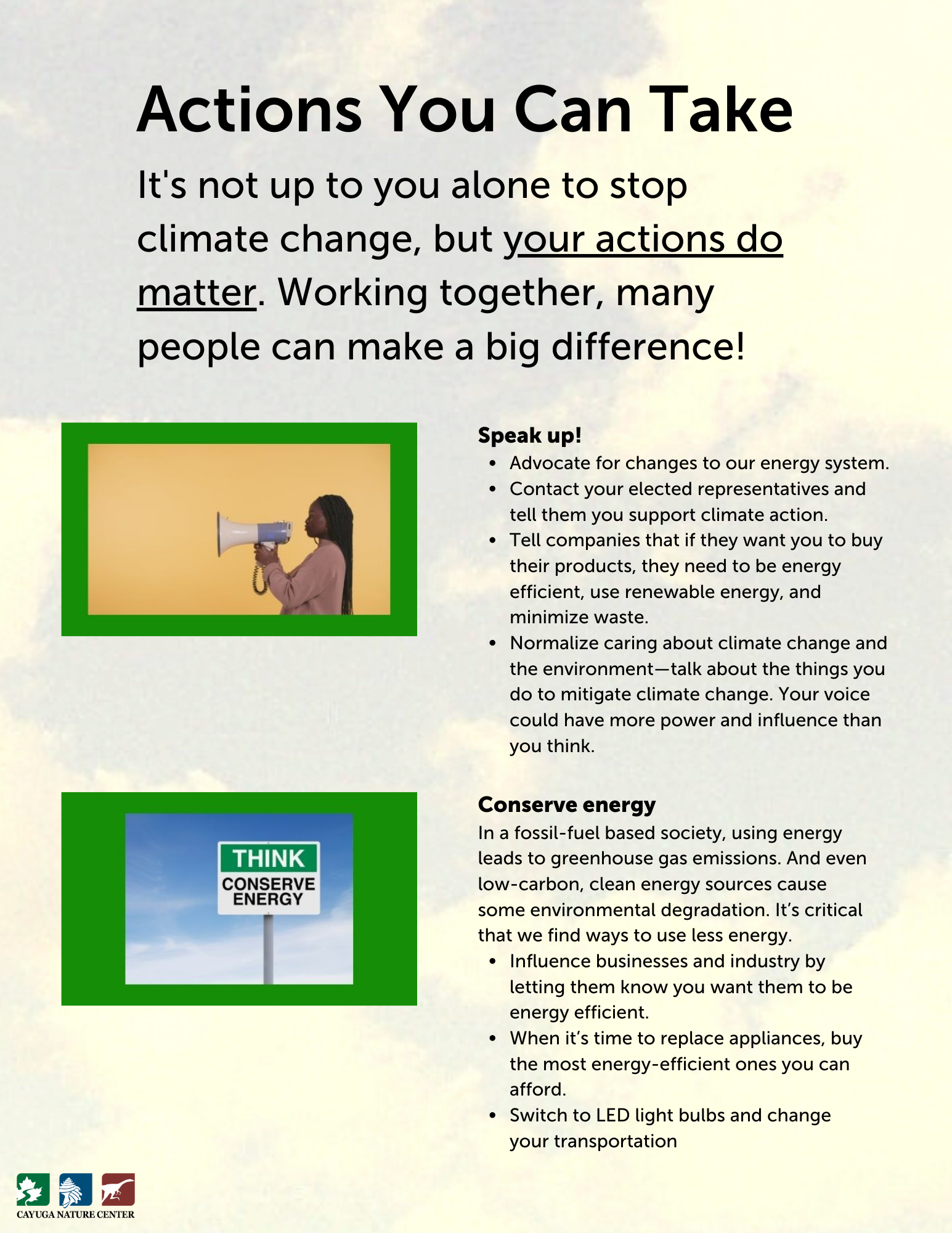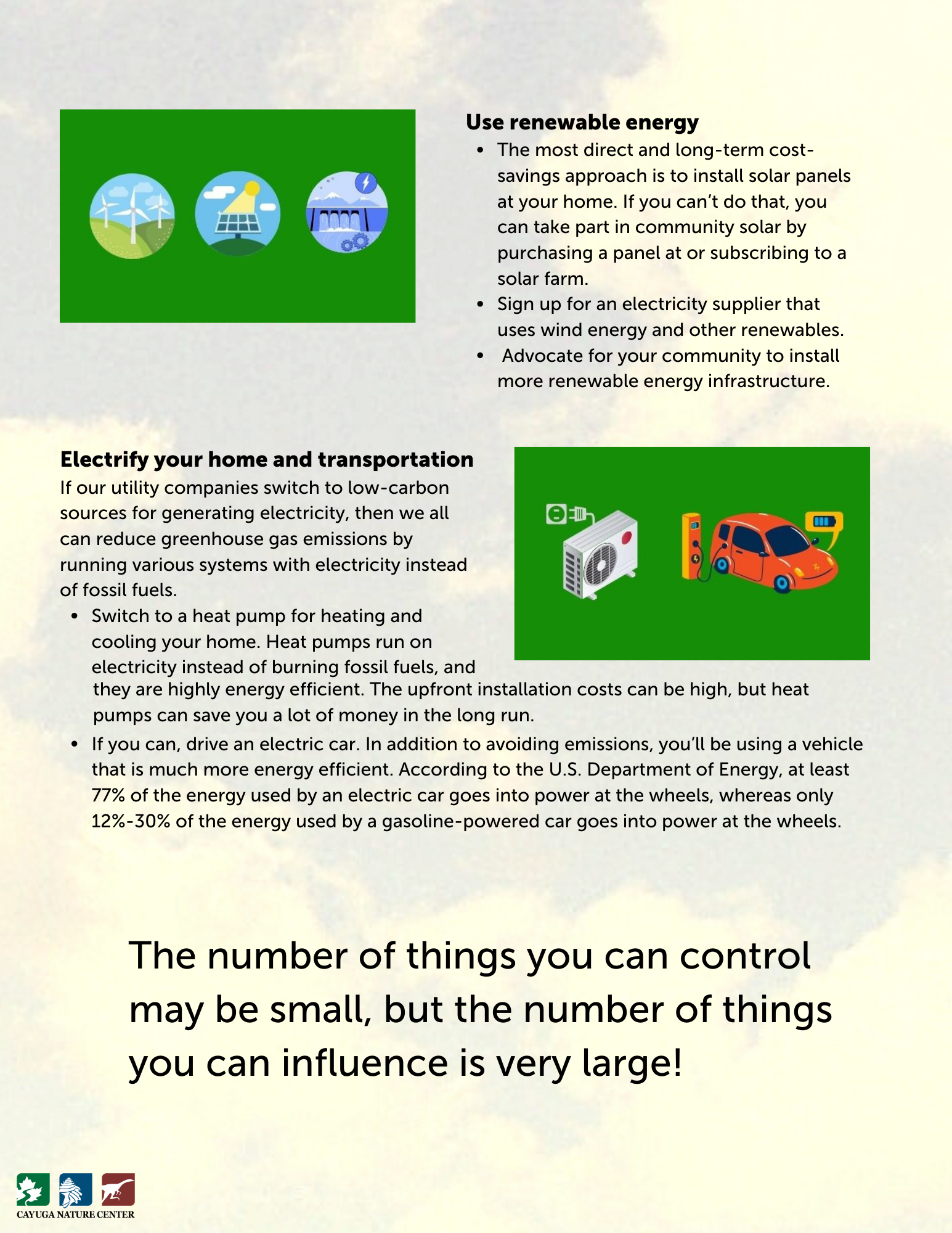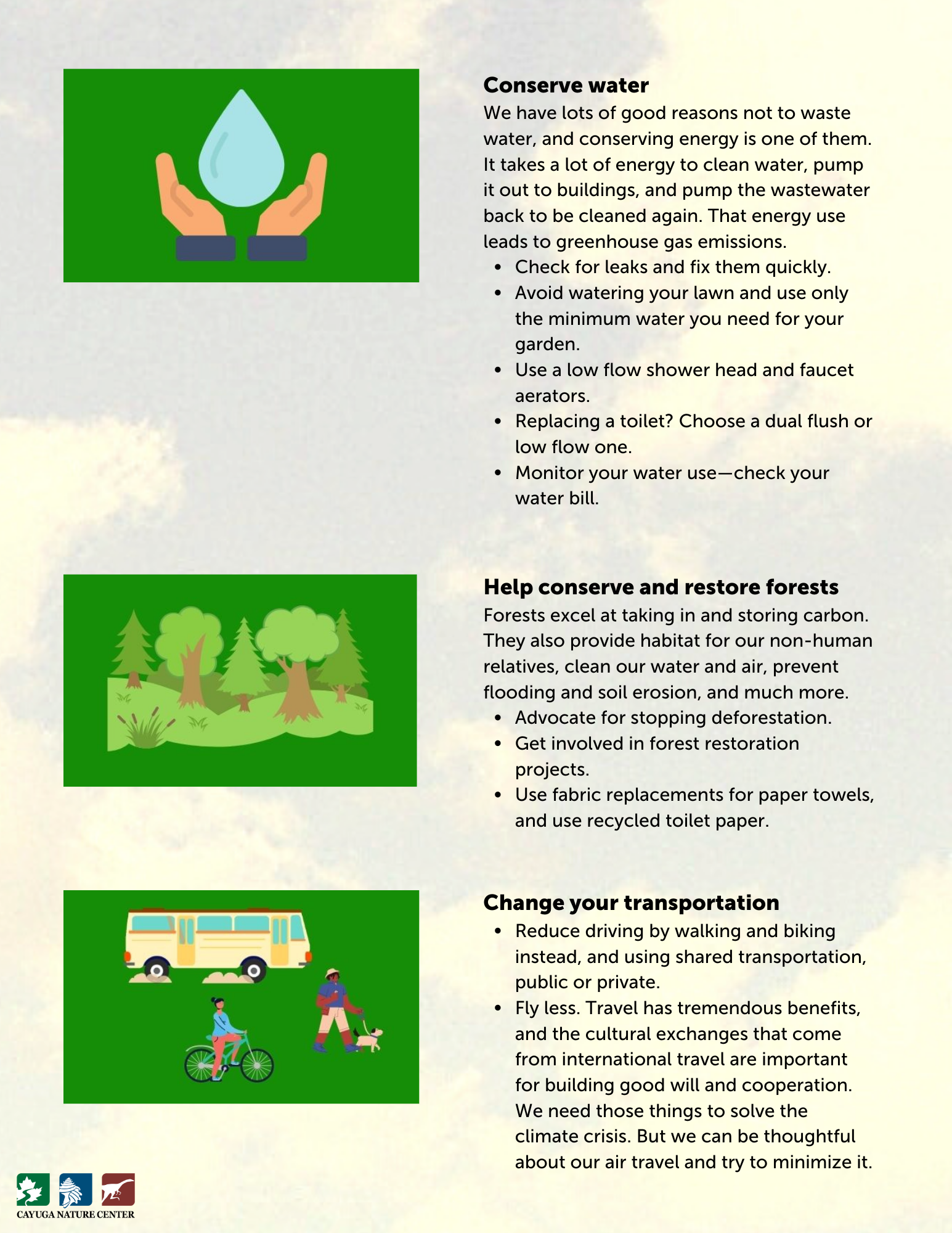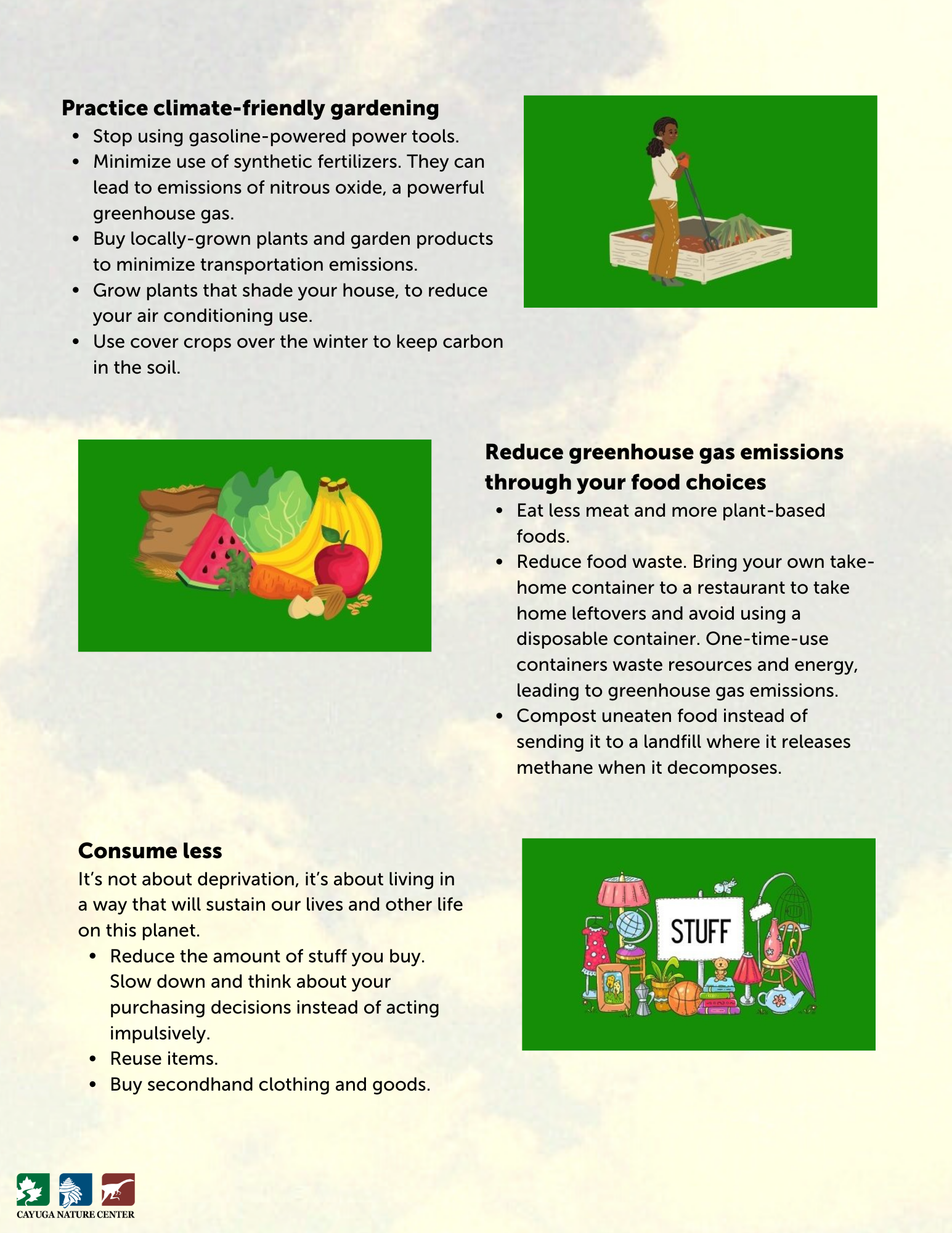We can do something about climate change
Individual Action
You can make a difference: in your choices as a consumer, in the way you get around, in how you run your household, and in how you use your voice and your vote to influence policies.
In your household you can reduce your energy use, which reduces greenhouse gas emissions if your electricity and heating come from fossil fuel sources. You can do this by using LED light bulbs, resetting your thermostat, turning off appliances when not in use, and buying more energy efficient appliances.
You can carpool, walk, bike, or take the bus instead of driving alone. You can reduce food waste and compost, because food production, transportation, and disposal in landfills generates greenhouse gases. You can eat more vegetables, which result in fewer carbon emissions than meat.
Explore the impacts of your choices
Try our impact calculator at the Museum of the Earth’s online climate exhibit.
Community and Societal Action
Individual actions are important, but not enough. Industries and communities worldwide need to institute new policies and practices that will help slow climate change and help societies adapt.
For example, in addition to companies producing more energy efficient cars, we need to think about how to restructure communities so that cars are less necessary.
Image: Plan El Paso
The most important thing we can do right now about climate change is talk about it!
Climate change is expected to influence the lives of all of us for decades to come. That make it an incredibly important topic for discussion, yet most Americans only rarely talk about climate change. Talking about climate change is the most important action we can take right now. All of us must become climate change educators.
Talk to your family, and your friends, of course, but also talk to lawmakers and the people you do business with. Let them know you think climate change is important and why you think so. Think about conversations you've had that have helped you understand someone else's point of view, and think about unhelpful conversations, too.
For more insights on why and how to have these conversations see Why Talk About Climate Change? on our Earth@Home website and our Teacher-Friendly Guide to Climate Change. It's friendly to more than just teachers.
Climate Action at the Cayuga Nature Center
We’ve replaced old light bulbs with higher efficiency ones to use less energy;
We compost unused food to prevent methane emissions from food waste in landfills;
We use storm windows where possible in the winter to reduce heat loss;
We use timers on devices in our animal exhibits to use less electricity;
We have bioswales on the side of our driveway to soak up stormwater;
We offer climate change education programs, to help visitors and our summer campers learn.
Actions You Can Take
Download a pdf of these four pages here. (943 kB)
These organizations—local to Tompkins County—can help you take climate action.
Smart Energy Choices is a collaboration of Cooperative Extension offices in New York's Southern Tier. Trained Community Energy Advisors help Southern Tier residents save money and energy by connecting them to resources on energy efficiency, renewable heat, and solar. They can help homeowners, renters, small businesses, non-profits, and multi-family home owners find programs and incentives that make doing the green thing the affordable thing to do.
The Finger Lakes Climate Fund works to promote clean energy projects in the Finger Lakes area while strengthening our regional economy and assisting local families in need. The Climate Fund provides a way for people to support our community while offsetting greenhouse gas emissions from their buildings or travel.
The Finger Lakes ReUse Center is working toward a just, resilient and waste-free world that values people and resources. Join in reducing waste sent to landfills, and giving quality materials and people new chances, all while making a local impact.











